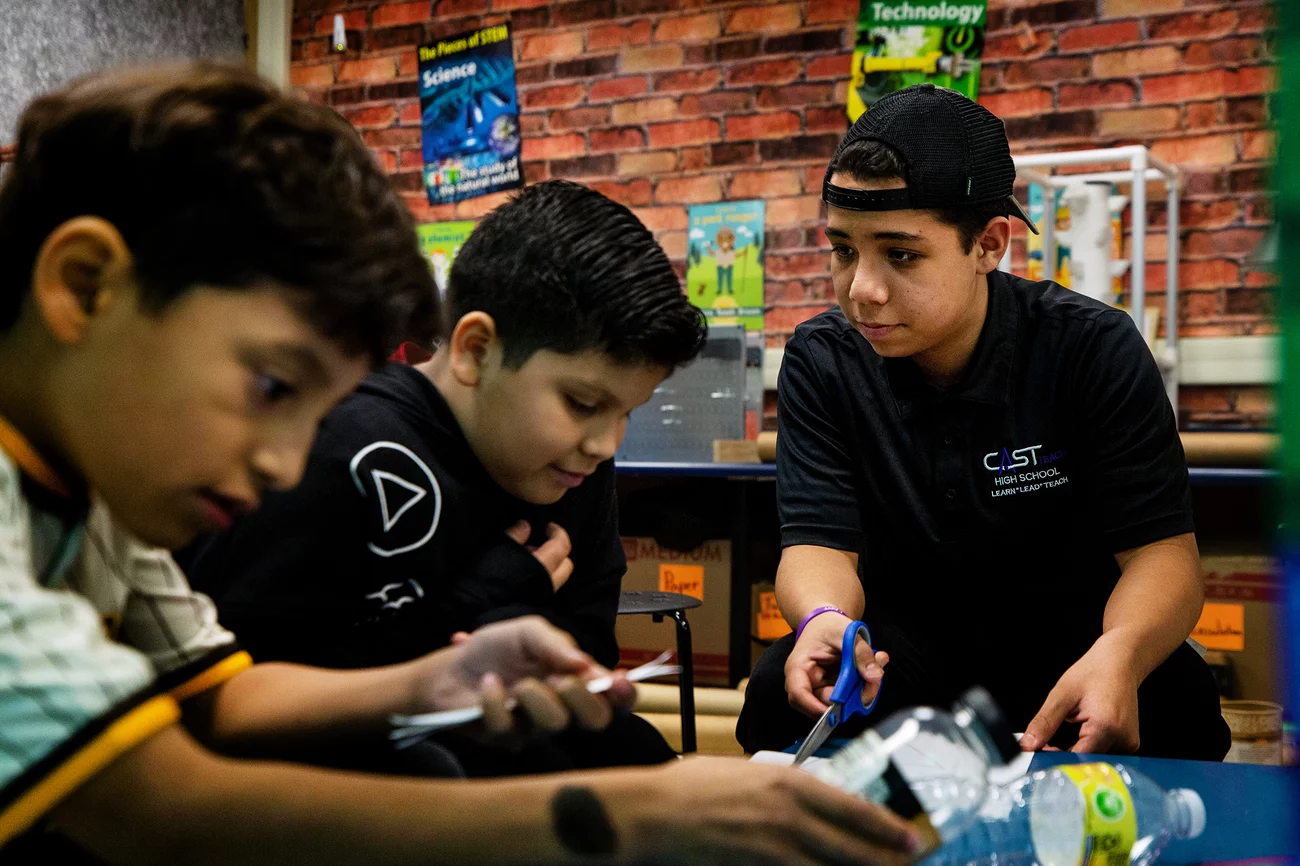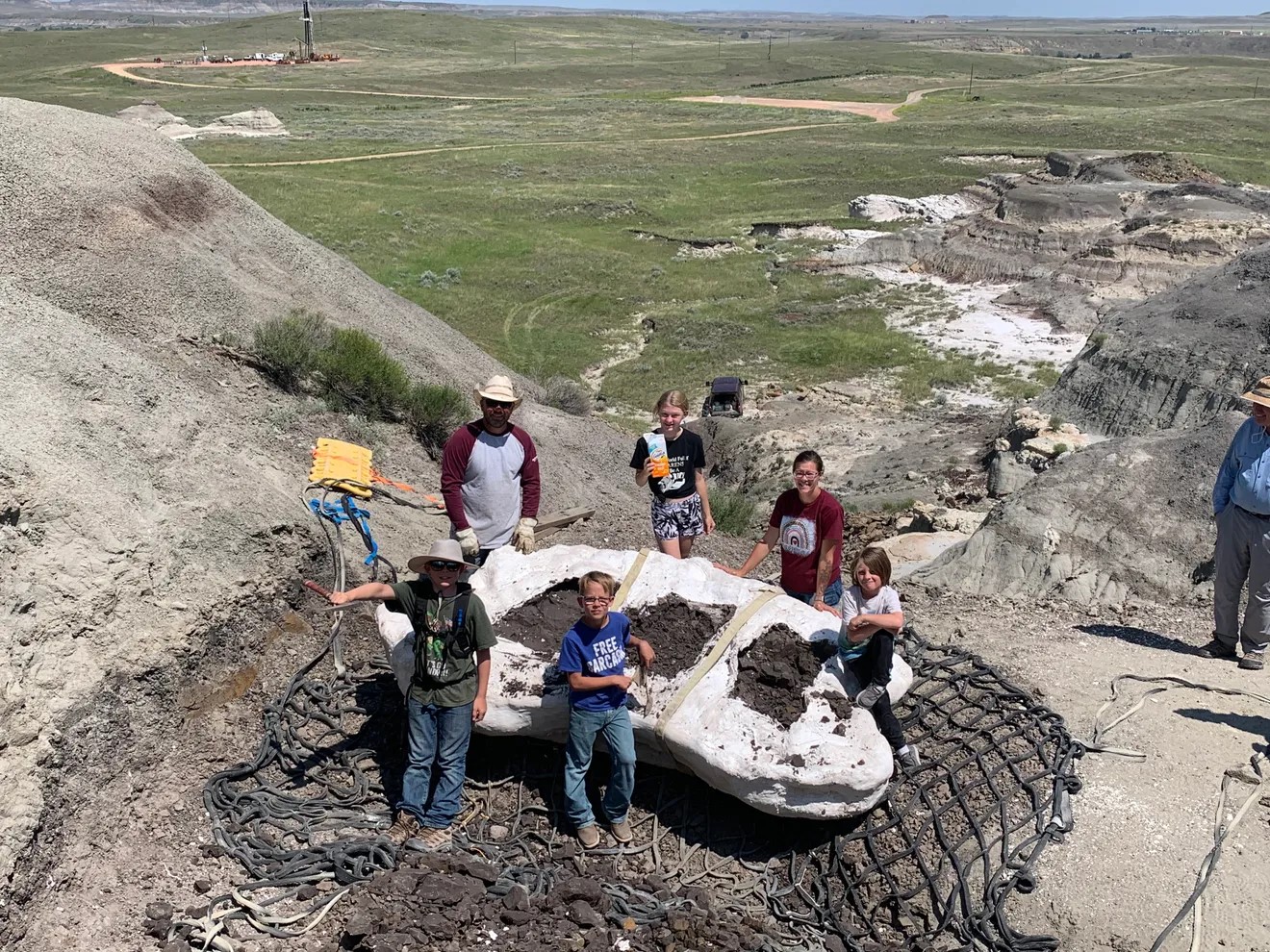06/06/24
Best of the West: Creative solutions to teacher shortages; water projects; opioid abatement; cows eating seaweed; T-Rex uncovered; solar design contest; Tiny Desk winner

The Western Governors' Association keeps you updated on the latest news in the West. Here are the top stories for the week starting June 3, 2024. (Photos courtesy of Adobe Stock Images, Kaylee Greenlee Beal for NPR, and The Denver Museum of Nature and Science).
Teacher shortages and a lack of childcare options are affecting school districts across the country, but western communities are implementing creative ways to address both issues.
According to the organization Teachers for Tomorrow, there are an estimated 55,000 vacant teaching positions and 270,000 jobs filled by underqualified teachers across the country. One reason for labor shortages across many industries, including K-12 education, is a lack of childcare options, with nearly a quarter of families unable to find viable childcare.
In an effort to tackle both of these issues, communities like the Dutton-Brady School District in rural northern Montana have opened a childcare center for the district’s teachers inside the K-12 school. The district, which serves only 131 students in a 625-square-mile region, had no issue filling its three teacher vacancies this year. Before opening the daycare, the district, like many across the country, had struggled to fill its vacant positions. Now, Dutton-Brady is able to fill its teaching posts and even draw teachers that live far from the school.
“If we didn’t start this day care last year, we would not have filled our three openings,” said the Superintendent of Dutton-Brady schools. “We have no teacher shortages right now.”
In-school daycare also exists in other rural areas of Montana, such as the towns of Ekalaka and Browning.
Similar in-school childcare programs are cropping up in Colorado as well, from rural towns in the state’s southwest, to populous Boulder County on the Front Range.
Another program in Enid, Oklahoma, is part of a growing group in the state that is finding success providing low-cost, employee-only childcare for teachers and staff at the district’s elementary school.
Other innovative ideas to address teacher shortages in the West include a program in San Antonio, Texas, that is preparing high school students to become teachers long before they get to college. The CAST Teach program is a new high school specifically designed for students interested in careers in education. CAST allows high school students to get hands-on experience in the classroom, which will give them years of extra experience by the time they become full-fledged teachers.
Additionally, programs known as “Grow Your Own” (GYO) have been gaining attention recently as a way to address the nation’s teacher shortage. The programs are designed to make the teaching profession more attainable and accessible by helping people earn bachelor’s degrees, complete their teacher certification, or simply drive interest in the field. Such programs have gained popularity in the West, with states like Hawaii, New Mexico, Utah, and Nevada opting to fund GYO programs in various forms.
Outside of childcare for educators, western states have taken steps recently to address the gaps in childcare options for all parents. In New Mexico, the state is taking money it earns from leasing lands to oil and gas companies to make childcare free for nearly all of the state’s families.
In Washington, the state is looking to offer free preschool to all low-income families and childcare to all low and moderate-income families in the coming years.
Northern Colorado water projects: two major loans have been awarded to the fast-growing communities of northern Colorado to finance major regional water projects. The loans, which were vetted by the Colorado Water Conservation Board and approved by lawmakers, total $255 million, which marks the largest financing packages approved by the state in recent years.
The Chimney Hollow Reservoir project outside of Loveland, Colorado, will receive $155 million. The project will build 90,000-acre feet of storage capacity and will supply 30,000 acre-feet each year once completed.
$100 million will go to the Northern Integrated Supply Project, which looks to build two new reservoirs and a new pipeline system to capture drinking water for 15 community water suppliers.
Seaweed for cows: in Hawaii, cattle are being fed farmed red algae in an attempt to cut down on the methane that is emitted when cows belch. In a recent trial from Kona-based Symbrosia, livestock that were fed seaweed cut their methane production by an average of 77%.
Thanks to the potential for seaweed to cut down on methane emissions and other applications, the industry is growing to the point where the World Bank estimates that it could be worth $12 billion by 2030. This year, Symbrosia received $2.2 million in federal grant funding to expand its operations, allowing the 5-year-old venture to grow its production by 1,600%.
T-Rex uncovered: three boys in the Badlands of North Dakota uncovered a rare T-Rex fossil while out for a hike. After the trio stumbled upon the 67-million-year-old fossil, the boys’ father contacted Tyler Lyson, his former high school classmate and the curator of paleontology at the Denver Museum of Nature and Science.
The T-Rex, which paleontologists were able to determine was a juvenile, will soon be on display at the Denver Museum of Nature and Science. The dinosaur likely weighed around 3,500 pounds and stood 10 feet tall, according to the museum.
Opioid abatement: the Oklahoma Opioid Abatement Board awarded its first round of grants recently. The board awarded $11 million to 71 cities, counties, school districts, and public trusts to help address the opioid crisis in Oklahoma.
The grants will help fund treatment and recovery programs, opioid education programs, mental health support, proper prescription efforts, and strategies to decrease the supply of opioids across the state. The city of Tulsa and Tulsa Public Schools won the largest grant at $700,000, which will go toward coordinated opioid abatement services.
Check out WGA’s Policy Resolution, Combatting the Opioid Crisis, to learn more about Western Governors’ policy positions on the opioid crisis.
Solar Decathlon winners: The U.S. Department of Energy Solar Decathlon announced the winners of its 2024 Design Challenge recently. The contest challenges students to design low-carbon buildings powered by renewable energy to promote innovation, STEM education, and workforce development in the buildings industry.
The University of Arizona took home the top prize for their design of 24 eco-friendly rowhouses in partnership with the Hopi Tribe. The houses include a passive design technique, along with a microgrid that promotes energy sovereignty for the community. The project designed affordable, efficient housing that honors Hopi culture and will cultivate a flourishing community for years to come, according to the University of Arizona’s presentation.
Tiny Desk Contest Winners: the popular amateur music competition from NPR unveiled its winner recently. The 10th anniversary of the Tiny Desk Contest crowned the Sacramento, California-based group, The Philharmonik, with the top honor. The Philharmonik is a group led by talented front man Christian Gates, who plays multiple instruments, sings, raps, and writes.